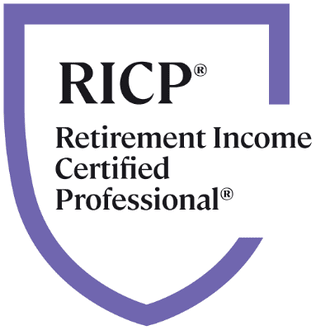
Taking RMDs with Multiple Retirement Plans, and Government Pensions
Required Minimum Distributions or RMDs generally are minimum amounts that a retirement plan account owner must withdraw annually starting with the year that they reach 72 (70 ½ if you reach 70 ½ before January 1, 2020).
What types of retirement plans require minimum distributions?
The RMD rules apply to all employer-sponsored retirement plans and pensions, including profit-sharing plans, 401(k) plans, 403(b) plans, and 457(b) plans. The RMD rules also apply to traditional IRAs and IRA-based plans such as SEPs, SARSEPs, and SIMPLE IRAs. The RMD rules also apply to Roth 401(k) accounts. However, the RMD rules do not apply to Roth IRAs while the owner is alive. Essentially, any employer-sponsored retirement plan or IRA, except for Roth IRAs, must take RMDs.
Can an account owner take an RMD from one account instead of separately from each account?
An IRA owner must calculate the RMD separately for each IRA they own but can withdraw the total amount from one or more of the IRAs. Similarly, a 403(b) plan owner must calculate the RMD separately for each 403(b) plan that they own but can take the total amount from one or more of the 403(b) plans.
However, RMDs required from other retirement plans, such as 401(k) and 457(b) plans, must be taken separately from each of those accounts. This is one of the rules that does not get much attention. You cannot aggregate RMDs for 401(k) and 457(b) plans, but you can for one or more 403(b) or one or more IRA accounts.
What happens if a person does not take an RMD by the required deadline?
If an account owner fails to withdraw an RMD, fails to withdraw the full amount of the RMD, or fails to withdraw the RMD by the applicable deadline, the amount not withdrawn is taxed at 50%! Yikes! This penalty is very severe, and if the RMD was not taken, the account owner should file Form 5329, Additional Taxes on Qualified Plans (Including IRAs) and Other Tax-Favored Accounts with their federal tax return for the year in which the full amount of the RMD was not taken. The main message is not to forget your RMDs, as the penalty is hefty and can be easily avoided.
If you have a Pension, do you need to take RMDs?
If you have a government pension such as TRS, you must take RMDs, as this is a qualified retirement plan under federal tax law. In addition, federal regulations require that TRS pension plan members must begin to receive benefits by a “required beginning date.” So by simply having a government pension, you cannot avoid taking RMDs. But there is no table to calculate the RMDs as the monthly pension annuity complies with the RMD rules.
How do You Avoid or minimize RMDs?
First thing, RMDs are not necessarily bad! The whole purpose of saving for retirement use the money in retirement. And studies have shown that with RMD, many retirees are better able to enjoy retirement with the additional money they have to withdraw.
But there are some ways to avoid or minimize RMDs.
1. Do Roth Conversions. Essentially you are taking the pre-tax money and converting it to a Roth IRA and paying the tax on the money converted that year. This might make a lot of sense if you are in a lower tax bracket. But Roth conversions do not count as your RMD. The RMD must come out first.
2. Minimize RMDs through a government pension or Being Employed and Contributing to your Retirement Plan. Since the pension stretches out the money in monthly payments, you can keep at perhaps a lower tax bracket rather than taking out a more significant sum as an RMD. Talk to a financial planner to learn more about RMD and strategies for taking them. You can also avoid RMDs if you are employed and contributing towards the retirement plan. You must take RMDs from that account when you separate from the service.
RMDs are very important to understand. A lack of knowledge of RMDs can end up costing you a lot in penalties. Contact me on the contact page below if you want to learn more about how RMDs fit into your retirement plan.
*This content is developed from sources believed to be providing accurate information. The information provided is not written or intended as tax or legal advice and may not be relied on to avoid federal tax penalties. Individuals are encouraged to seek advice from their tax or legal counsel. Individuals involved in estate planning should work with an estate planning attorney. Neither the information presented nor any opinion expressed constitutes a representation of a specific investment or the purchase or sale of securities. Asset allocation and diversification do not ensure a profit or protect against loss of principal in declining markets.





